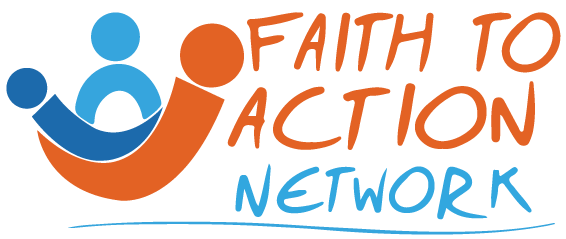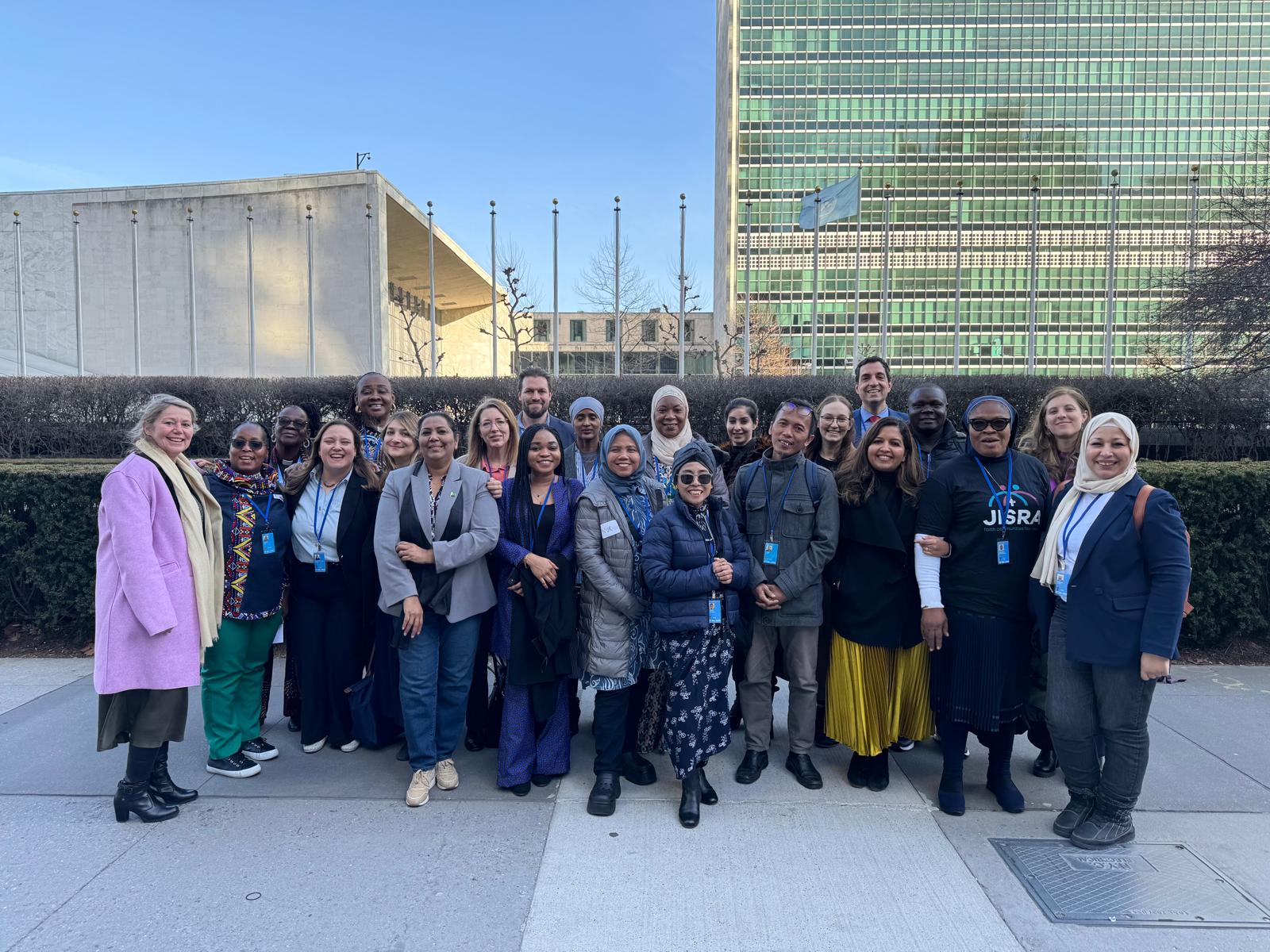Our advocacy and communication efforts at the Commission on the Status of Women were made possible through collaboration, as shown by the many allies and friends we worked with to co-host or contribute to events. We supported these engagements through concept development, communication, facilitation, speaking and moderation roles. Through these partnerships, our JISRA delegation brought together 25 participants from Brazil, Egypt, Germany, Indonesia, Ireland, Kenya, Mali, Mozambique, Netherlands, Nigeria, Pakistan, Thailand, UK, and USA, though delegates from Ethiopia and Iraq were denied US visas. Our strategic alliances in advocacy amplify the voice of our members, increasing diversity of perspectives and opinions, strengthening legitimacy, opening closed doors, increasing influence and reach in global policy spaces.
- JISRA strategic partnership including Network of Religious and Traditional Peacemakers, Mensen met een Missie, Tearfund, Asian Muslim Action Network
- The UN Multi-Faith Advisory Council
- The Partnership on Development and Religion and its members World Vision Canada, Muslim for Progressive Values and The International Dialogue Centre (KAICIID)
- ACT Alliance, Finland, WCC, FELM, NCA, Act Church of Sweden, DanChurchAid, LWF, FCA, Cordaid, Anglican Alliance, Anglican Communion Office, World YWCA, IRW, URI, SGI, World Renew, International Academy for Multicultural Cooperation, Women in International Security
- African Renaissance Trust, AU Commission, Botswana and SADC parliamentary forum
- Somalia and UNDP
We spoke or moderated events organized by
- Canada, United Kingdom, Global Programme to End Child Marriage (UNICEF, UNFPA), Children’s Investment Fund Foundation (CIFF), Girls Not Brides (GNB) Co-sponsors: Zambia, Dominican Republic, Girls First Fund (GFF), Zonta International.
- Global Campaign for Equality in Family Law and Sweden, Zambia, UN Women, UN Human Rights Special Procedures, and the Global Campaign for Equality in FamilyLaw, including ACT Alliance and Act Church of Sweden.
- Center for Reproductive Rights, Reproductive Health Network Kenya, FEMNET, UN Special Rapporteur on the Right to Health, Zamara Foundation.
- Islamic Relief USA, University of Birmingham, UNHCR.
These collaborations reflect the power of interfaith and cross-sector partnerships in advancing gender equality and upholding the rights of women and girls globally. At Faith to Action Network, we remain committed to building inclusive platforms where diverse voices can shape policy, influence narratives, and drive lasting change. As we look ahead, we will continue to nurture these alliances, advocate boldly, and work collectively toward a world where gender justice is not just a goal, but a reality.



